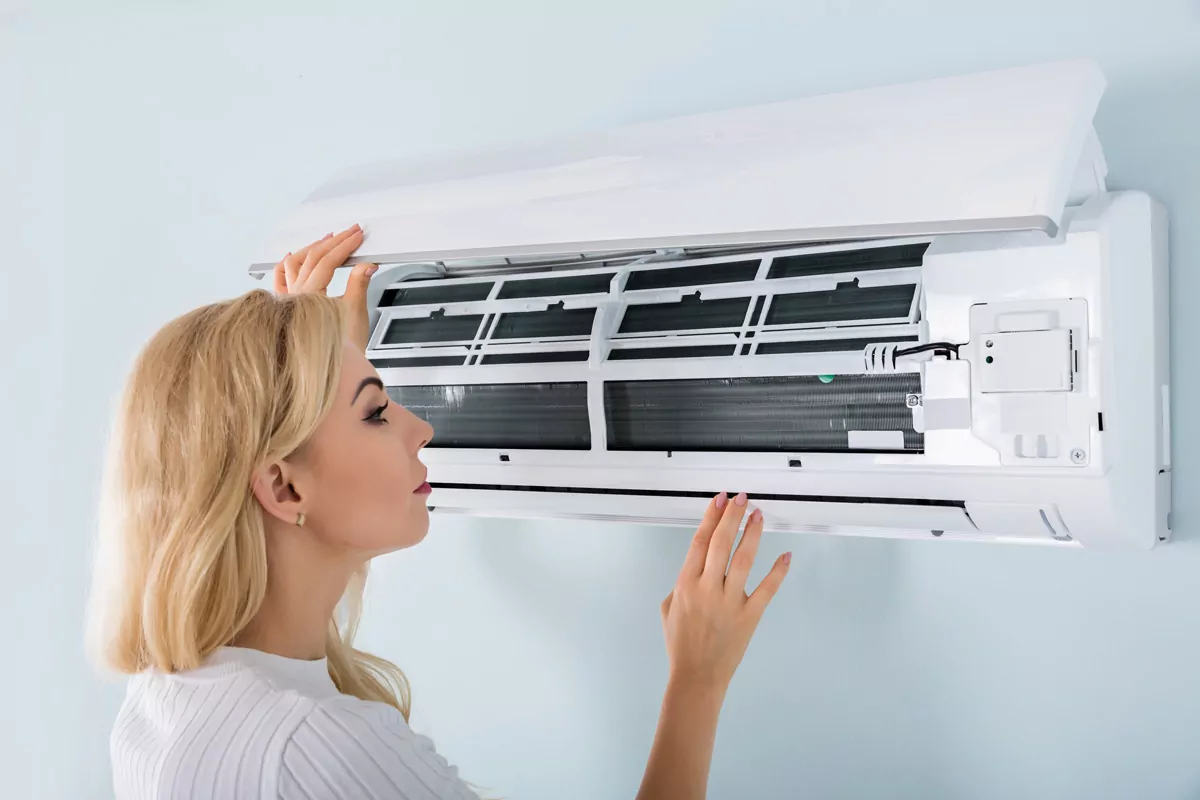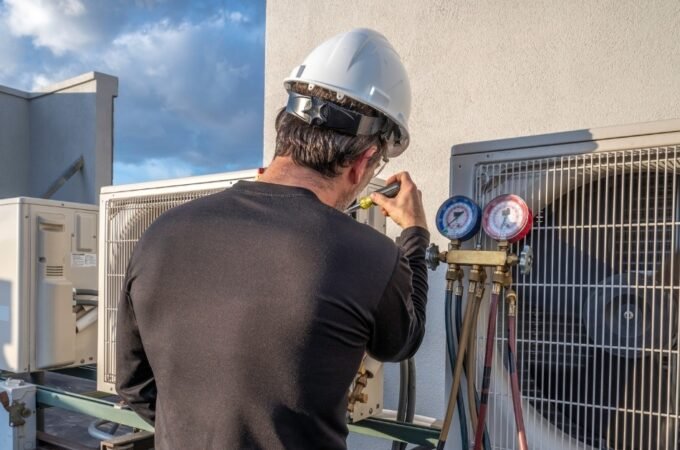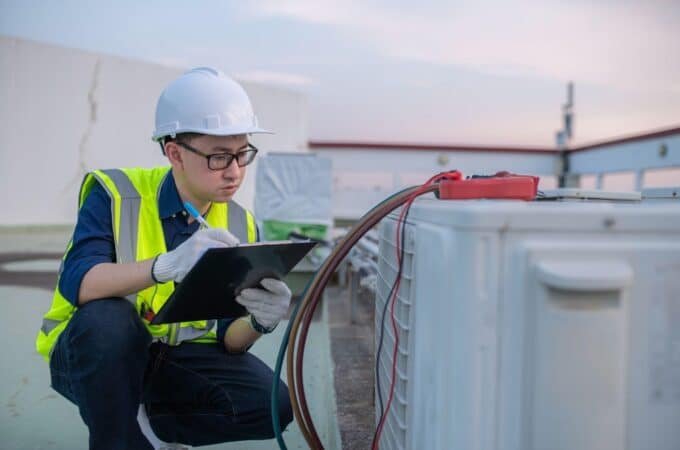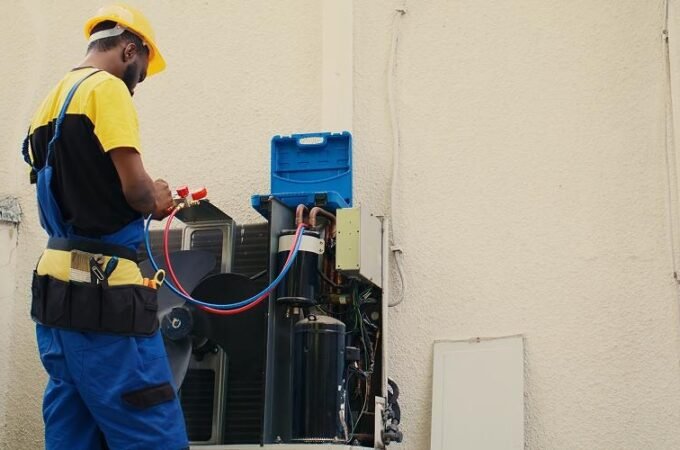
How to Handle HVAC Emergencies at Home
Table of Contents
ToggleIntroduction
HVAC emergencies can occur unexpectedly at any time, whether due to severe weather conditions, equipment malfunctions, or unforeseen system failures. These emergencies can significantly compromise the comfort, safety, and air quality within your home. For example, a sudden heating failure during winter cold snaps can cause dangerously low temperatures, posing health risks such as frostbite or hypothermia. At the same time, a refrigerant leak or compressor breakdown during summer can result in dangerously high indoor temperatures and humidity levels. Indoor air quality problems, such as mold growth or polluted air due to ventilation issues, can also escalate suddenly, leading to respiratory problems and other health concerns.
When such emergencies strike, immediate action is crucial. Recognizing the warning signs—such as strange noises, foul odors, erratic system behavior, or a complete system shutdown—can help you respond promptly. For urgent needs, professional 24/7 emergency HVAC services, with technicians ready to dispatch, diagnose, and repair issues swiftly. They can help restore your system’s normal operation, ensuring your home remains safe and comfortable.
Proactive maintenance, including regular system inspections, filter changes, and duct cleaning, can help reduce the risk of emergencies. In the event of an emergency, swift decision-making and effective troubleshooting are crucial. Doing so not only provides peace of mind but also helps prevent costly repairs, extensive property damage, and potential health risks associated with prolonged system failures or poor indoor air quality.
Key Takeaways
- Recognize common signs of HVAC emergencies to act swiftly.
- Implement immediate steps to ensure safety and prevent further damage.
- Understand when to seek professional assistance and how to choose a reliable service provider.
- Adopt preventive measures to reduce the likelihood of future HVAC emergencies.
Recognizing HVAC Emergencies
Addressing HVAC problems early can save time, money, and discomfort. Emergencies often share several warning signs. Some to watch for include:
- Unusual Noises: Banging, screeching, or buzzing may indicate serious mechanical failures or loose parts in your system.
- Strange Odors: The smell of something burning could signal overheated wiring or electrical faults, while musty odors may indicate mold growing within your ductwork or unit.
- No Heating or Cooling: If your system is running but does not regulate your home’s temperature, a significant malfunction may have occurred.
- Frequent Cycling: If your HVAC system is switching on and off rapidly, this could mean thermostat malfunctions, blocked airflow, or failing components.
Detecting these issues early allows you to take action before a minor defect develops into a major emergency.
Immediate Steps to Take
Once you suspect your HVAC system is having an emergency, taking the right steps can help limit damages and keep your family safe until help arrives:
- Turn Off the System: Prevent further stress to the equipment by shutting it down. This reduces the risk of fire, electrical shock, or additional mechanical failures.
- Check the Thermostat: Inspect it for error codes, flashing displays, or incorrect settings. Sometimes, a simple reset corrects minor problems.
- Inspect Circuit Breakers: If your system has shut down, check your home’s electrical panel for tripped breakers and reset them if necessary. A recurring trip indicates a deeper electrical issue that requires professional attention.
- Examine Air Filters: Dirty or clogged filters severely restrict airflow and can cause your HVAC unit to overheat or shut down. Replace or clean them if needed.
Taking these immediate actions can sometimes restore partial function and will prepare your system for a safe inspection.
When to Call a Professional
Certain HVAC (Heating, Ventilation, and Air Conditioning) emergencies can pose serious safety risks and require immediate attention from qualified professionals. Recognizing the signs of these emergencies is crucial to prevent potential health hazards, property damage, or even life-threatening situations. Below are some critical indicators:
- Gas Leaks: The presence of a strong, unpleasant odor resembling rotten eggs or sulfur indicates a natural gas leak. Gas leaks are extremely dangerous as they pose a risk of explosion, fire, and poisoning. If you detect this smell, evacuate all occupants from the building immediately, avoid using electrical switches or open flames, and contact emergency services immediately. Only after the area has been deemed safe should you call an experienced HVAC technician to address and repair the leak.
- Electrical Problems: Electrical issues within an HVAC system, such as unusual sparks, the smell of burning plastic or insulation, or frequent system failures, can be signs of wiring hazards or faulty components. Attempting to fix these problems yourself can be dangerous, as electrical faults can lead to shocks or fires. It’s best to turn off the system and call a licensed electrician or HVAC technician to diagnose and resolve the issue safely.
- Refrigerant Leaks: Refrigerants are chemicals used in air conditioning and refrigeration systems to facilitate cooling. Leaks of refrigerant are hazardous because they contain toxic chemicals that can cause health problems upon exposure, such as respiratory issues, skin irritation, or more severe conditions. Additionally, refrigerant leaks reduce system efficiency, leading to increased energy costs and potential damage to the unit. Because handling refrigerants requires specialized skills and equipment, only certified professionals should perform repairs related to leaks.
Prompt professional intervention in these situations is essential to safeguard your health, prevent fires, and avoid costly damage to your HVAC system. For additional guidance on identifying emergencies and knowing when to call in emergency HVAC services, consider reviewing detailed resources or articles dedicated to HVAC safety protocols.
Choosing a Reliable HVAC Service
In an emergency HVAC situation, it is understandable to want to contact the first available technician. However, choosing a company that is trustworthy and reputable is crucial to ensuring your investment is protected and that the repair is done correctly and safely. To make an informed decision, consider the following detailed criteria:
Licensing and Certification: Verify that the HVAC company is properly licensed by the state or local authorities, which indicates compliance with regulatory standards. Additionally, verify that individual technicians hold relevant certifications, such as EPA certification or NATE certification, which demonstrate their possession of up-to-date knowledge of safety protocols, technical skills, and industry best practices.
Experience: Look for providers with extensive experience in handling a wide range of HVAC emergencies, including system failures, refrigerant leaks, electrical issues, and other related problems. An experienced company is more likely to diagnose and resolve issues efficiently, minimizing downtime and potential damage.
Availability: Emergency HVAC services should be available 24 hours a day, 7 days a week, 365 days a year. A rapid response is especially critical during nights, weekends, or holidays when regular service providers may not be available. Confirm that the company guarantees prompt response times and has contingency plans in place for priority emergencies.
Customer Reviews and Reputation: Evaluate the company’s quality and reliability by reading online customer testimonials and reviews on independent platforms, such as the Better Business Bureau, Yelp, or Google Reviews. Consistently positive feedback regarding professionalism, timeliness, and quality of work is a good indicator of a trustworthy service provider.
Taking the time to evaluate potential HVAC service providers thoroughly can significantly reduce stress during emergencies and increase the likelihood of receiving effective, safe, and long-lasting repairs. For more detailed tips and guidance, refer to reputable industry resources or comprehensive maintenance guides.
Preventive Measures
Many HVAC emergencies can often be prevented or significantly minimized by adopting a proactive approach to regular maintenance and attentive care. Incorporating these practices into your routine can help ensure your system operates efficiently, reducing the likelihood of unexpected breakdowns and extending its lifespan.
- Schedule Routine Inspections: It’s advisable to have professional HVAC technicians conduct preventative check-ups at least twice a year—once before the heating season and once before the cooling season. These inspections allow technicians to identify and address potential issues early, such as refrigerant leaks, faulty thermostats, or worn-out components, preventing minor problems from escalating into costly emergencies.
- Replace Air Filters Regularly: Air filters play a crucial role in maintaining indoor air quality and system efficiency. Depending on your usage and the type of filter, it’s recommended to change filters every one to three months. Regular replacement prevents dirt accumulation, ensures optimal airflow, and reduces strain on your HVAC system, which can otherwise lead to higher energy bills and component failure.
- Keep the Area Around Units Clear: Maintaining a tidy and debris-free environment around your outdoor and indoor HVAC units is vital for proper airflow and system performance. Remove leaves, grass clippings, dirt, and any objects that could obstruct air intake or exhaust vents. Adequate clearance around the units not only promotes efficiency but also helps prevent overheating and mechanical stress.
- Monitor System Performance: Stay attentive to your HVAC system’s operation between maintenance visits. Unusual noises, such as banging or rattling, noticeable drops in efficiency, increased energy bills, or irregular operational patterns, should be investigated promptly. Early detection of these symptoms enables timely repairs, preventing minor issues from escalating into major failures.
Overall, consistent and thorough maintenance of your HVAC system is essential for ensuring its reliability, efficiency, and longevity. For more comprehensive preventative tips and tailored advice, consult trusted HVAC resources or professionals trained in the latest system technologies and maintenance practices.
By learning to recognize HVAC emergencies, acting quickly, and performing preventive maintenance, homeowners can enjoy a safe and comfortable living space year-round—no matter what the forecast brings.

Michelle Joe is a blogger by choice. She loves to discover the world around her. She likes to share her discoveries, experiences, and express herself through her blogs.





